Smile’s Innovation Watch #42
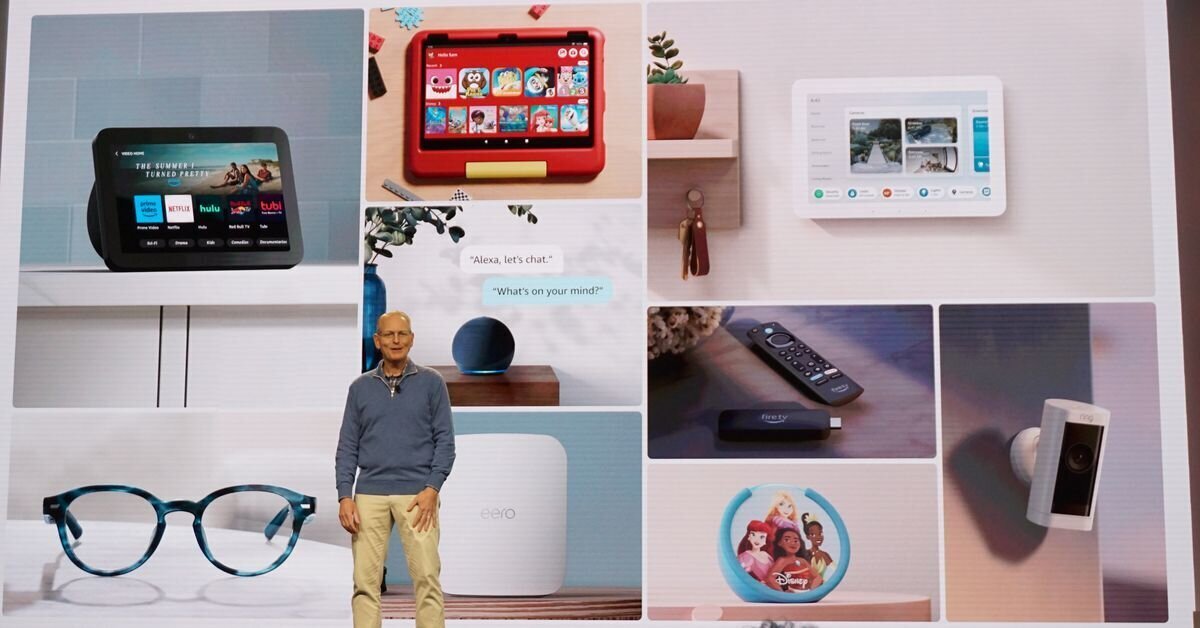
Welcome to the 42nd edition of our Tech Watch, and as we unravel the mysteries of the innovation universe, we can’t help but chuckle at the cosmic coincidence of this edition number with the famous answer to life, the universe, and everything from Douglas Adams’ ‘Hitchhiker’s Guide to the Galaxy’. While we might not have all the answers, we definitely have some riveting insights into the technological advancements shaping our world. So, let’s dive in, shall we?
In this 42nd edition of Tech Watch, we explore Humane’s debut of the Ai Pin at Paris Fashion Week, heralding a screen-free future, and Meta’s collaboration with Ray-Ban on smart glasses, merging physical and digital interactions. Amazon’s Alexa evolves with a new large language model enhancing conversational capabilities, while Posture Pal innovatively utilizes Apple’s AirPods for posture correction. Clearbit 3.0 offers an AI-boosted platform with a free trial, and LibrePCB releases a user-friendly electronic design suite. We delve into the discourse on the pace of software development and Google’s homepage redesign testing in India, alongside the financial dynamics of AI services highlighted by GitHub Copilot’s operational costs, contrasting Adobe’s cost-effective approach with its Firefly generative AI tools.
Stay inventive,
⏳ Reading time: 9 minutes
💡 Innovation

The Humane Ai Pin makes its debut on the runway at Paris Fashion Week
Humane, a company co-founded by former Apple executives, unveiled its debut product, the Humane Ai Pin, aiming for a formal launch later in 2023. The product was first showcased in a sneak peek in April 2023, and it’s intended to propel us towards a screen-free future. The Ai Pin is a wearable device resembling a “Star Trek”-style communicator badge, designed to be worn over the heart area. It houses a variety of sensors to facilitate contextual and ambient compute interactions, embodying a new era of personal mobile computing which is seamless, screenless, and sensing.
The company has also partnered with Qualcomm to power the Ai Pin with a Snapdragon chip, although the specific generation of the chip wasn’t disclosed. Moreover, the device’s unique design features a laser projector which was demonstrated to show phone controls on the wearer’s outstretched hands.
Humane is slated to fully unveil the Ai Pin on November 9, 2023, as part of its vision for intelligent clothing-based wearable tech. The company had initially revealed its inaugural product, the Ai Pin, in June and had also featured it on the Paris runway as a connected and intelligent clothing-based wearable device. People interested in the Humane Ai Pin have the option to join a waitlist on the official Humane website to gain priority access to the product unveiling later in the year.

Ray-Ban Meta Smart Glasses
Meta, in collaboration with Ray-Ban, has introduced a new generation of smart glasses priced at $299, with shipping starting on October 17. These smart glasses are equipped with a variety of features aimed at merging the physical and digital worlds. Users can livestream directly from the glasses to their followers on Facebook and Instagram, showcasing Meta’s integration of its social media platforms with the wearable technology.
The Ray-Ban Meta smart glasses are designed with an improved 12MP camera, a 5-mic audio array, and a revamped speaker system, offering a more comfortable design with a slimmer profile and a charging case. They also come with new features like live streaming and a companion app, Meta View app, redesigned to make sharing photos and videos with friends easier.
Additionally, the smart glasses have Meta AI built-in, which can provide information on the item a user is looking at, further enhancing the interactive experience. While using the smart glasses, users are reminded to comply with local laws and regulations, especially concerning privacy and the use of recording devices.
These smart glasses represent a step towards Meta’s ambition of creating a more interconnected and immersive digital experience. Through these glasses, Meta aims to extend its social media ecosystem and AI capabilities into the wearable technology market, potentially setting the stage for more integrated and interactive digital-physical environments in the future.

Amazon’s all-new Alexa voice assistant is coming soon, powered by a new Alexa LLM
Amazon has unveiled a new version of its Alexa voice assistant, powered by its Alexa large language model (LLM). The new Alexa will be able to understand conversational phrases, interpret context more effectively and complete multiple requests from one command. The assistant will also be able to respond to multiple requests at once and create routines on the fly, without manual programming in the Alexa app. The new Alexa will be available in the US in the coming months, through a preview programme, and will be free, but Amazon has not ruled out charging for the service in the future.
The new Alexa will be able to control third-party manufacturer products that aren’t necessarily in Amazon’s smart home ecosystem toolkit, using Dynamic Controller and Action Controller. The former will enable pre-built scenes for lighting control to be surfaced more naturally, while the latter will allow developers to add simple actions that Alexa can act on. Amazon is already working with GE Cync, Philips, GE Appliances, iRobot, Roborock and Xiaomi on these features, and developers can sign up to participate.
🛠 Tools
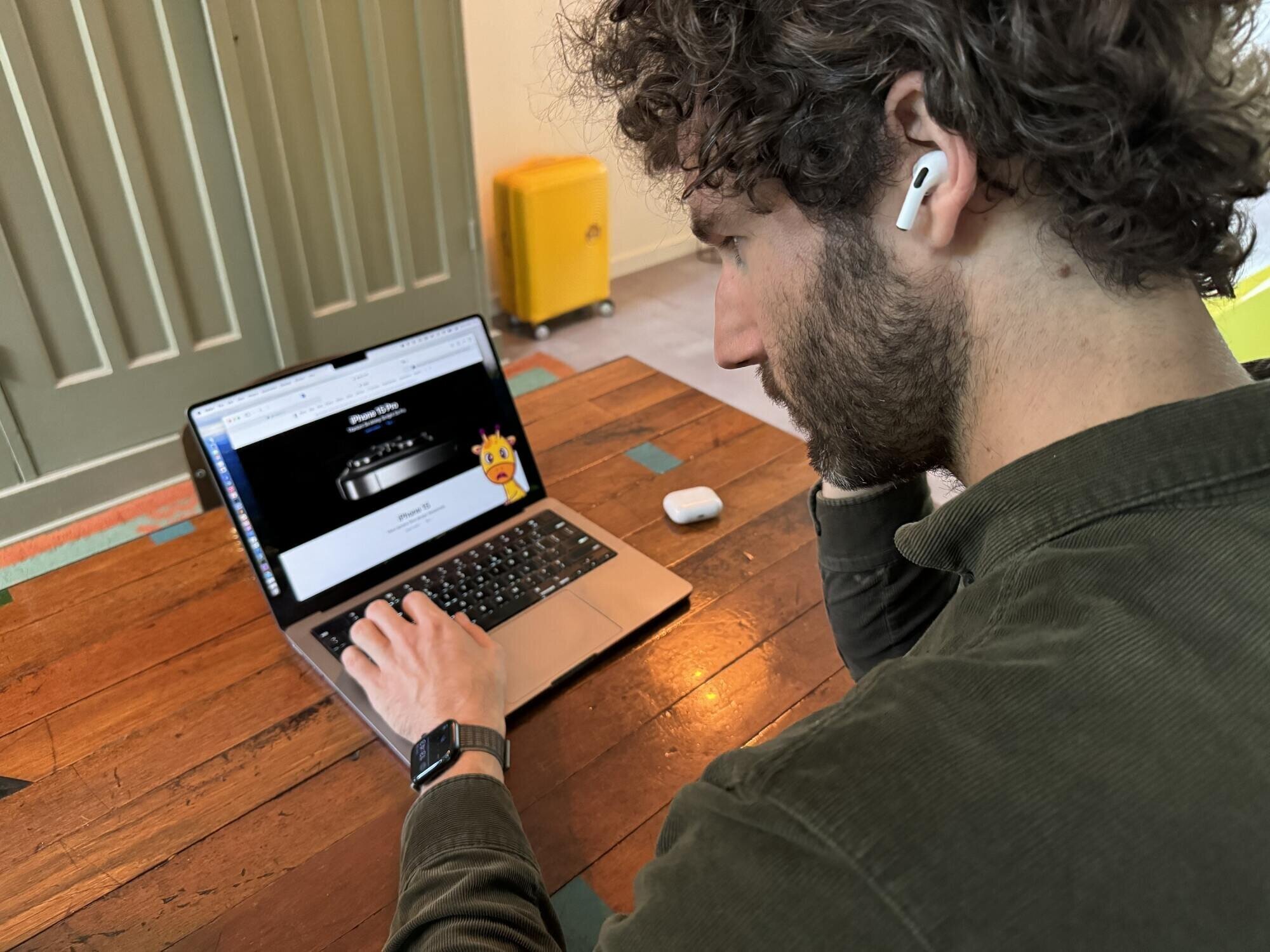
Posture Pal - Improve your posture with your AirPods
Posture Pal is an app aimed at enhancing neck and shoulder posture by leveraging the motion sensors in Apple’s AirPods. Upon initiating a “Posture Session,” it monitors your neck tilt, alerting you of unfavorable posture even in the app’s background operation.
It employs playful characters—Rafi the Giraffe, Haru the Monkey, and Paca the Alpaca—for subtle posture reminders, appearing on your Mac screen when needed. The app allows sensitivity adjustment for posture detection, setting an alert delay, and choosing the reminder’s on-screen location.
Designed for user-friendliness, it avoids complicated screens or constant notifications; you start the app and forget about it, receiving reminders only when your posture needs correction. Posture Pal not only addresses posture concerns effectively but also showcases an additional utility for Apple’s AirPods, providing a novel way to utilize their motion sensors for posture monitoring.
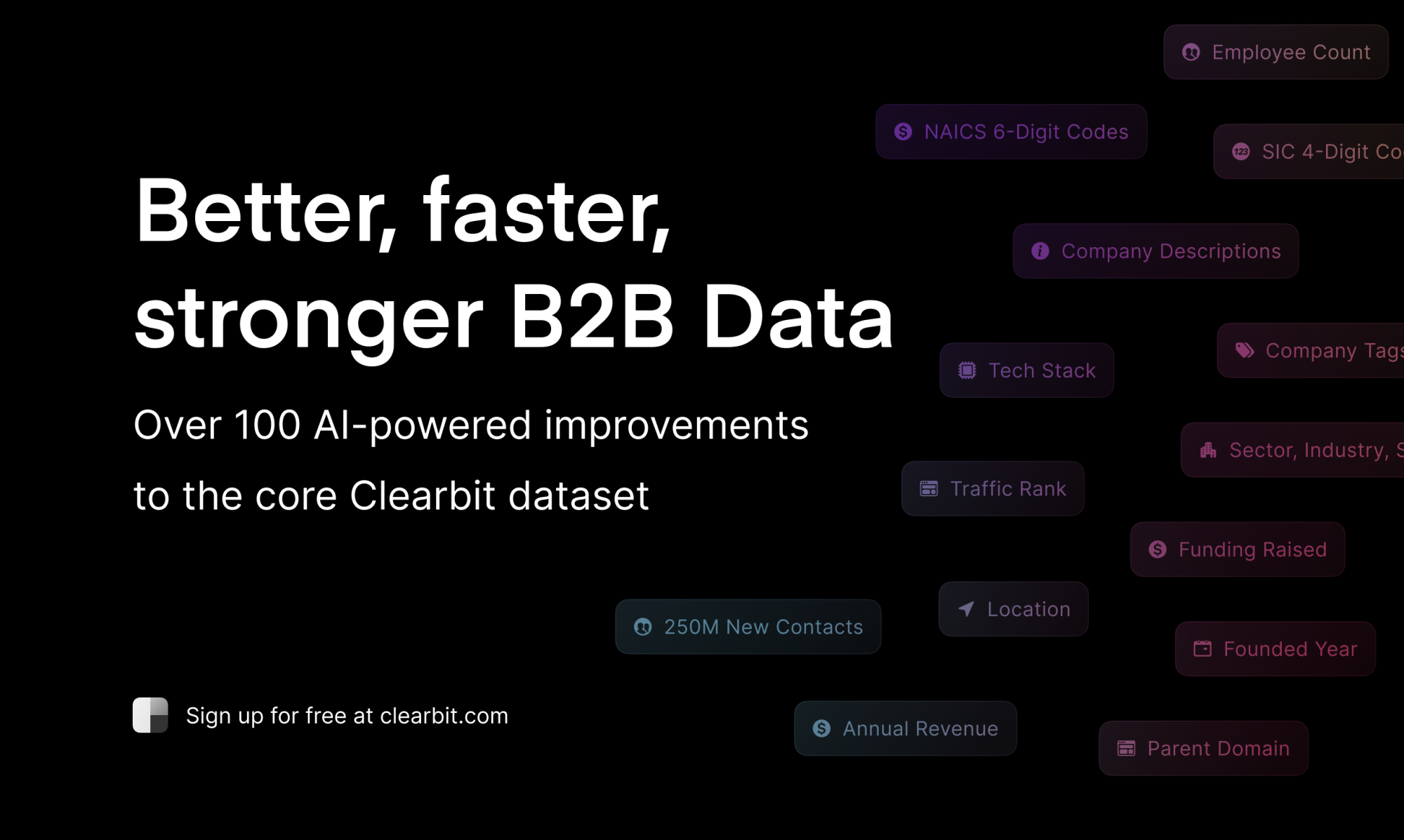
Clearbit 3.0 - Rebuilt with AI, and 100% free to try
Clearbit 3.0 has been launched as an updated version of Clearbit, with over 100 AI-powered improvements made to its core data sets. The platform has also undergone a redesign and, for the first time, is available for a free trial. The new features include alerts, intent detection, form shortening, enrichment among others, allowing users to have a more enhanced experience with the platform. This updated version seems to solidify Clearbit’s position as a useful tool in tech stacks, with over 1003 products including Notion and HeyGen utilizing Clearbit for their operations.
The emphasis on AI-powered improvements suggests an enhancement in data accuracy and processing, which could provide better insights or streamline operations for its users. The addition of new features like form shortening and enrichment also hints at an attempt to provide a more user-friendly and enriched experience. Offering a free trial is a significant move that could attract more users to explore the updated platform and its features.
However, the exact specifics of the AI-powered improvements and how they compare to previous versions were not detailed in the provided source. It would be beneficial to explore further on Clearbit’s official site or other tech review platforms to get a thorough understanding of Clearbit 3.0 and how it can benefit its users in their respective tech stacks.
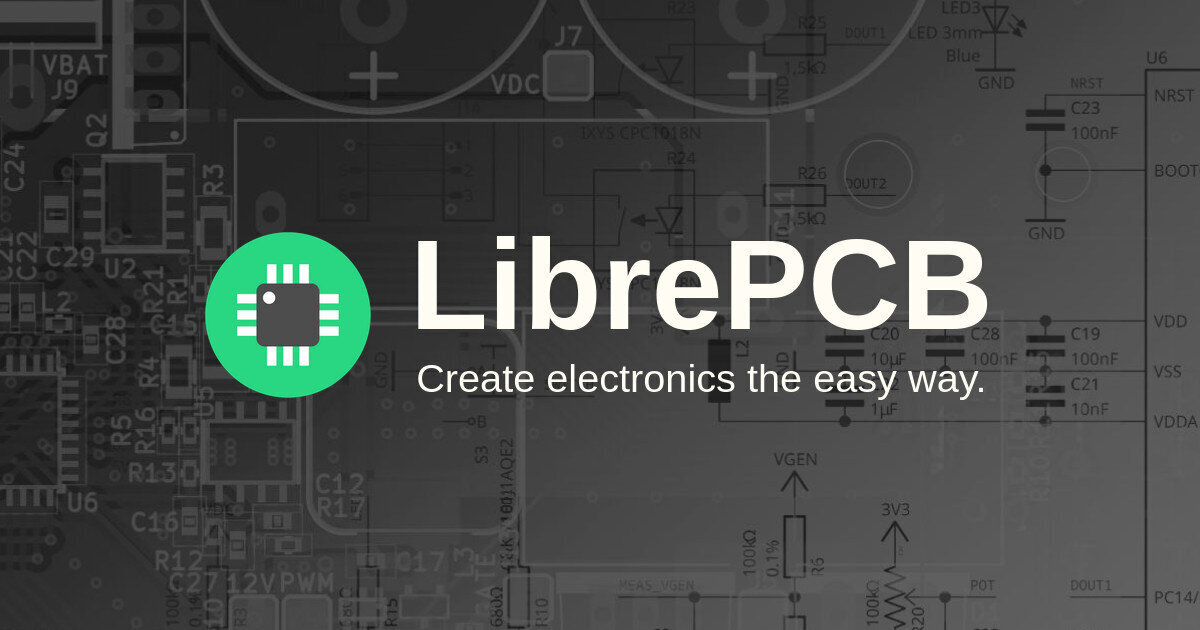
Create electronics the easy way
LibrePCB has released version 1.0.0 of its free, cross-platform electronic design automation suite. The software is designed to be easy to use for makers, students, and professionals of all levels of experience. It allows users to draw schematics and design printed circuit boards without any costs, restrictions, online accounts, or unnecessary complexity.
LibrePCB is developed with portability in mind, making it compatible with Windows, Linux, and macOS. It is available in 16 different languages and features a simple, intuitive user interface that allows users to get started quickly without having to spend days studying documentation. The software also offers a semantic library organization that makes library management more enjoyable and eliminates many problems associated with other EDA tools. Additionally, the librepcb-cli feature allows users to improve quality assurance and save time by running important checks and data exports in an automated, headless way.
📊 Trends

Why We Don’t Ship Software as Fast as We Used To
The article discusses the perception that software development has become bloated, overengineered, and slow. The author argues that while software has become more complex, this is due to the increasing demands and expectations of users, such as higher screen resolutions and larger file sizes. Additionally, the author suggests that the growth of software development teams and the use of abstractions has made it more difficult to know the full stack of a project, which can slow down development. However, larger teams are able to do more and ship faster, even if they are not as fast as smaller teams.

Google.com tests a news-filled homepage, just like Bing and Yahoo
Google is testing a new version of its homepage in India, which features a newsfeed similar to the Google Discover newsfeed found on the Google mobile app. The homepage experiment includes rows of news articles that Google has algorithmically detected will interest users, as well as “at a glance” cards featuring sports scores, stocks, and the weather. The change makes Google look busier and more like Bing and Yahoo. The experiment could go nowhere and might never see a wide launch, or it could be an optional setting or alternative mode of Google.com, with the traditional white page still as an option.
The mobile app and desktop website are currently very different, but if Google Discover has a business reason to exist on the mobile app, the same justification should apply to Google.com. With Google’s willingness to sacrifice old traditions in the name of revenue, a big change to the homepage may finally happen.
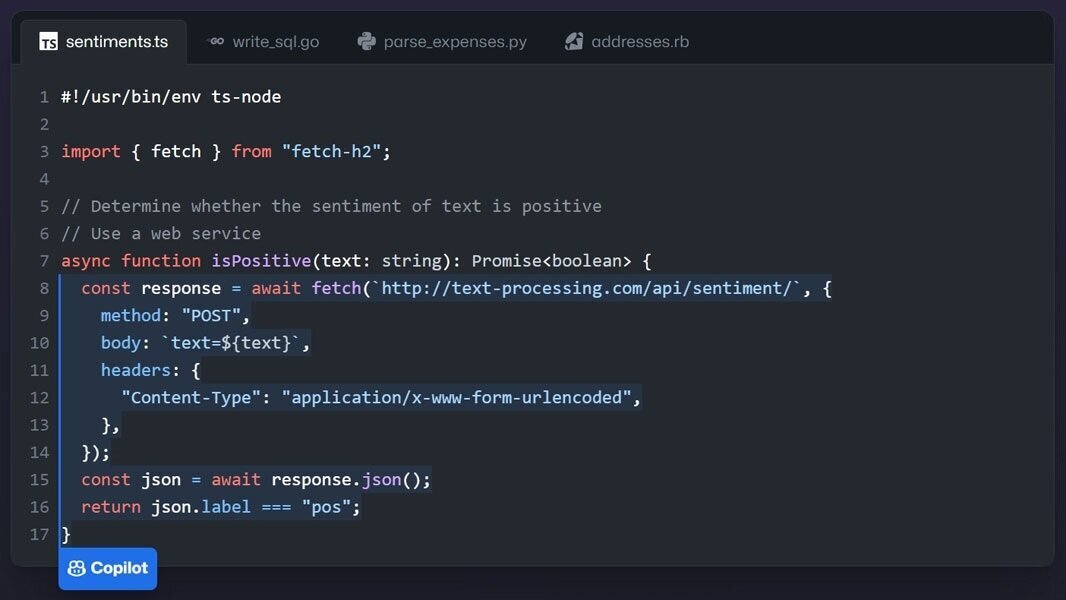
GitHub Copilot Loses an Average of $20 Per User Per Month
Big Tech companies are facing high costs in delivering AI capabilities to their customers, according to a report in the Wall Street Journal. Even paid services are losing money, with Microsoft’s GitHub Copilot service costing the company an average of $20 per user per month, and some users costing as much as $80 per month. As a result, Microsoft is developing its own in-house AI chipsets for use in its data centres and is pushing the PC industry to adopt Neural Processing Units (NPUs) that accelerate AI operations independently of the CPU. This will enable PCs to offload some AI tasks from the cloud and process them locally, reducing expenses on the backend.
Adobe has solved the problem of high costs with its Firefly generative AI tools, which are profitable. The company slows down the service’s performance on a per-user basis once that user has gone over their monthly credit allotment, which is based on the price they pay Adobe each month. Microsoft is also looking at shorter-term solutions for the costs of AI, including using less powerful backend services that don’t cost as much to run.
That’s all folks
Did you enjoy it? If so don’t hesitate to share our article or subscribe to our Innovation watch newsletter! You can follow Smile on X & Youtube.